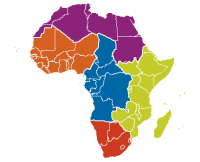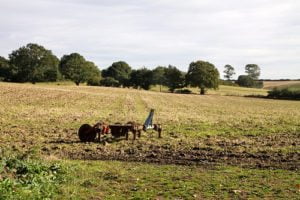

Economy
Innovation And Modernization Unlock Kenya’s Agricultural Potential
Dr. Moses Ikiara (pictured), Managing Director of KenInvest writes: Agriculture is integral to the Kenyan economy. It employs more than half of the working population, accounts to 65 per cent of Kenya’s export earnings while it directly contributes almost 27 per cent to the country’s GDP.
While agriculture is undoubtedly a major growth industry for the entire East Africa region, there is still room for further growth. Local and international firms including a world favourite cereal manufacturer, Weetabix are increasingly turning to partnerships and mechanisation to raise the gear on the industry’s growth rates in order to leverage spiking consumer demand across East Africa.
Companies are adopting technological innovations more and more through knowledge transfer to increase revenues and production efficiency. The impacts of this are increasingly gaining the attention of the public and private sectors.
The implementation of Kenya’s Agricultural Sector Development Strategy (ASDS) is projected to raise agriculture’s GDP contribution in line with Kenya Vision 2030. This move is instrumental in stimulating a heavy shift from subsistence farming to value added agricultural production and agricultural export. With these factors in place, Kenya’s agricultural sector is poised for continued growth.
While Kenya is a leading producer of cereals (maize, wheat, rice and sorghum), East African demand for cereals currently outstrips supply. The country has yet to reach its potential in cereal production, and global firms are taking notice of this. Weetabix is set to invest GBP 1.3 million in Kenya in the next three to five years to double its production volume and increase market penetration.
The motivation behind the world-famous wheat producer’s shift to target Kenya is two-pronged. Firstly, the company aims to capitalise on East Africa’s reliance on imports to meet growing food demands. Secondly, the company endeavors to drive local production and support local farmers.
The company can now commit to its ambition of sourcing wheat within just 50 miles of the plant in the heart of East Africa, as it does at its original British base. Through enhanced ease of doing business and modernised agriculture infrastructure, Kenya is now well placed to facilitate this. As a result, we expect to see a boost in cereal production, with 420,000 tons of wheat produced this year – the highest in the region but still short of the country’s annual demand of 900,000 tons.
In a move to cut costly wheat importation, the global food manufacturer has committed to sourcing more than 60 percent of its raw materials locally. With every single Weetabix packet produced in the East African nation, we see a platform for local farmers to benefit from global trade and knowledge & technological transfer opportunities. The company is investing in offering technical support to local farmers, including teaching international standard agronomical practices intended to cut domestic production costs, and offset the impact of higher wheat importation prices.
This locally empowered agriculture model enhances the long-term sustainability of Weetabix’s operations in Kenya. According to the Food and Agriculture Organization (FAO), sharing technological innovations with farmers can increase yields by up to 40 percent. The Weetabix example is not isolated. We are increasingly seeing large corporates, both foreign and locally owned, building sustainable links with farmers.
Farmer-to-farmer knowledge transfer is a core ingredient of strengthening the sector and minimizing its vulnerability to global commodity price shifts. As more private sector firms encourage farm modernization, we are seeing greater cost efficiency and systems of empowered local farmers – a set up that is impacting far more than one or two harvests.
Homegrown businesses are also seeing huge value in driving knowledge transfer within agriculture. Developed by a local business for local farmers, M-Farm provides information including up-to-date market prices via an app or SMS and direct connection with buyers, as well as production analysis. M-Farm has been instrumental in innovating the way farmers access information; prompting greater agricultural output and ultimately Kenya’s competitiveness internationally.
For frontier markets, this is the most valuable type of investment and a model, which Kenya is targeting to drive the sector’s direct and indirect contributions to GDP.
These are ‘impact investments,’ which do not simply represent hikes in FDI for a Government but which have a transformative effect on Kenya’s community. In Kenya’s agriculture sector, opportunities for global firms are plentiful.


 Features11 months ago
Features11 months agoEco-Friendly Cryptocurrencies: Sustainable Investment Choices

 Energy11 months ago
Energy11 months agoThe Growing Role of Solar Panels in Ireland’s Energy Future

 Energy10 months ago
Energy10 months agoGrowth of Solar Power in Dublin: A Sustainable Revolution

 Energy10 months ago
Energy10 months agoRenewable Energy Adoption Can Combat Climate Change




























